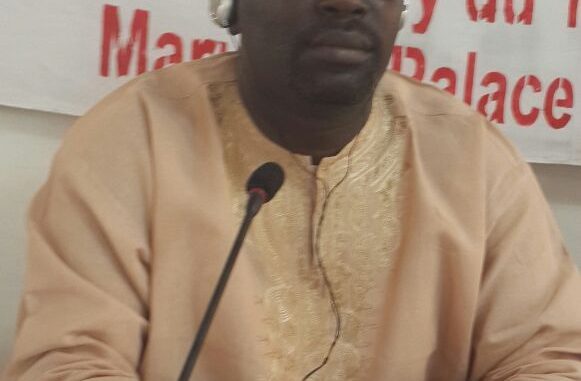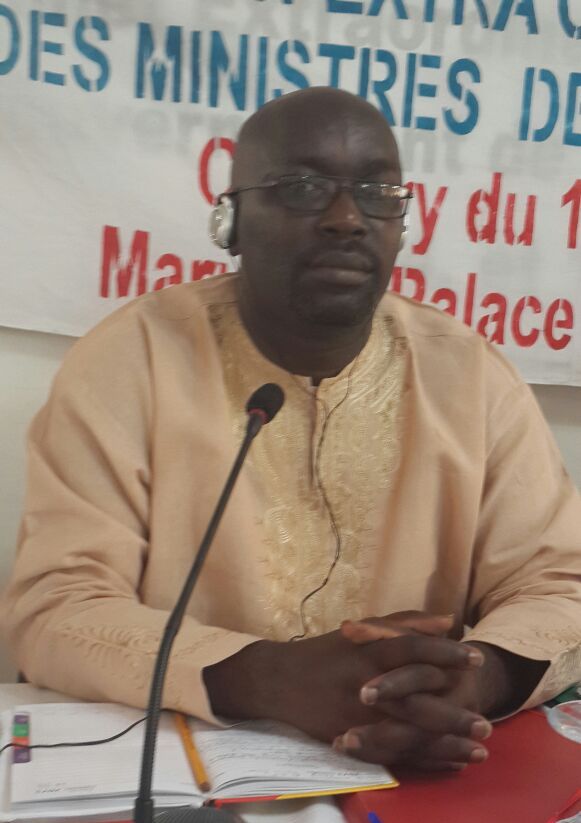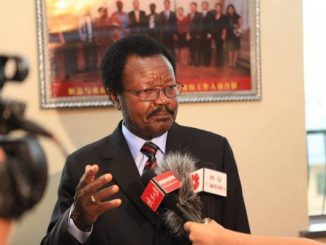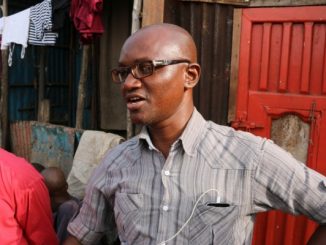
John Baimba Sesay-China
The promotion of women and children related issues form a major component in Sierra Leone’s development drive, especially as captured in the Agenda for Prosperity as Pillars Six and Eight of the document deals exclusively with social protection and gender respectively.
President Ernest Bai Koroma continues to take steps aimed at fostering gender equality and protection of children’s right. This is apparently manifested in the appointment of women in key governance positions as well as the enactment of legislations like the Registration of Customary Marriage and Divorce Act 2009; Sexual Offences Act 2012, amongst others. Pillar Six of the AfP deals with the implementation of the 2011 National Social Protection Policy, to complement the effects of economic growth in building resilience through the development of “social protection policies, institutions and programmes, building capacity of relevant agencies and their staff; extending social insurance interventions; providing basic social protection packages for the vulnerable; strengthening support for nutrition, health care, education and housing.”
Again, pillar eight of the Change trajectory, has, as a goal the need to “empower women and girls through (a) education, reducing socio-economic barriers and supporting formal and non-formal education; (b) increasing their participation in decision-making in public, private, and traditional institutions, and access to justice and economic opportunities; (c) strengthening prevention and response mechanisms to violence against women and girls; and (d) improving the business environment for women, with access to finance and capacity development…”
Hon. Moijueh Kai-Kai has so far been providing an effective political leadership at the country’s ministry of social welfare, gender and children’s Affairs since his appointment by His Excellency President Koroma as minister, and being the longest serving minister in that ministry under the presidency of Dr Ernest Bai Koroma. Sierra Leone, through Minister Kai-kai is presenting attending the 59th Session of the UN Commission on the Status of Women, commemorating two decades since the adoption of the Beijing Declaration and Platform for Action (BDPfA), which commenced on the 9th and expected to end on the 20th.
Adopted in Beijing, at the 16th plenary meeting of the Fourth World Conference on Women, on 15 September 1995, the BDPfA, in a nutshell, works towards advancing the goals of equality, development and peace for all women everywhere in the interest of all humanity. There was the commitment to: amongst other “the equal rights and inherent human dignity of women and men and other purposes and principles enshrined in the Charter of the United Nations, to the Universal Declaration of Human Rights and other international human rights instruments, in particular the Convention on the Elimination of All Forms of Discrimination against Women and the Convention on the Rights of the Child, as well as the Declaration on the Elimination of Violence against Women and the Declaration on the Right to Development…”
In this exclusive interview, minister Kai-kai first looked at what such a meeting means for Sierra Leone given the critical areas of the Beijing Declaration and Platform for Action:
Minister: It means a lot for Sierra Leone as we have taken normative, administrative and legislative measures to implement the 12 critical areas of the Beijing Declaration and Platform for Action. It will profile our achievements in terms of concrete milestones in the attainment of Gender equality and empowerment of women.
JBS: What gains has Sierra Leone registered towards the implementation of the Beijing Declaration and Platform for Action (BDPfA)?
Minister: Alot! For instance, there has been increased number of women in decision making or broadly put, in governance; reduction in child and maternal mortality as a result of free healthcare; free basic education and scholarship for girls and women doing sciences; establishment of women’s empowerment fund. Today, agricultural business units and centres are mostly headed by women, with the enactment of Gender sensitive legislations on domestic violence property marriage sexual offences and as a country; we are working on the gender equality and women’s empowerment policy and bill.
JBS: Government, in collaboration with UNWOMEN, Statistics Sierra Leone and Oxfam GB, undertook an assessment study of the gender dimension of the EVD. It came out that it 56.7 percent of females were infected by Ebola as at December 2014, compared to 43.3 percent of males. How concerned are you are gender minister?
Minister: Very concerned! And as long as we have evidence based data we will knock on the doors of the international and local partners to support the findings and recommendations contained in the assessment. We are working with UNWOMEN and UNICEF especially to implement the report recommendations. The government of His Excellency President Koroma has strong support for the gender and social protection in the post socio economic recovery programme.
JBS: from the legal framework, Sierra Leone today has a lot of laws dealing with the protection and promotion of women, gender related issues and child protection. How much have we succeeded in terms of these laws making the needed impacts?
Minister: We are challenged with their full implementation and enforcement but I must say they have made huge shift in the empowerment of women and girls. Law enforcement agencies and the judiciary must step up to ensure full enforcement and implementation.
JBS: What can you say about the President and Government’s commitment to gender issues?
Minister: Certainly the President is the champion of women empowerment as he had seriously contributed to the passage of the laws whilst in parliament. Of course he has made more appointments of women in key decision making than any President before him. This is manifested in the Agenda for prosperity which has a whole pillar on Gender Equality and Women’s Empowerment whilst mainstreaming gender in the other pillars. Issues of children and other vulnerable groups are captured in pillar 6-Social Protection. Full implementation of the AfP will make huge impact on women and children. There is a strong political will and sustained political support from my boss His Excellency President Koroma and colleagues in cabinet. We will certainly get there.




